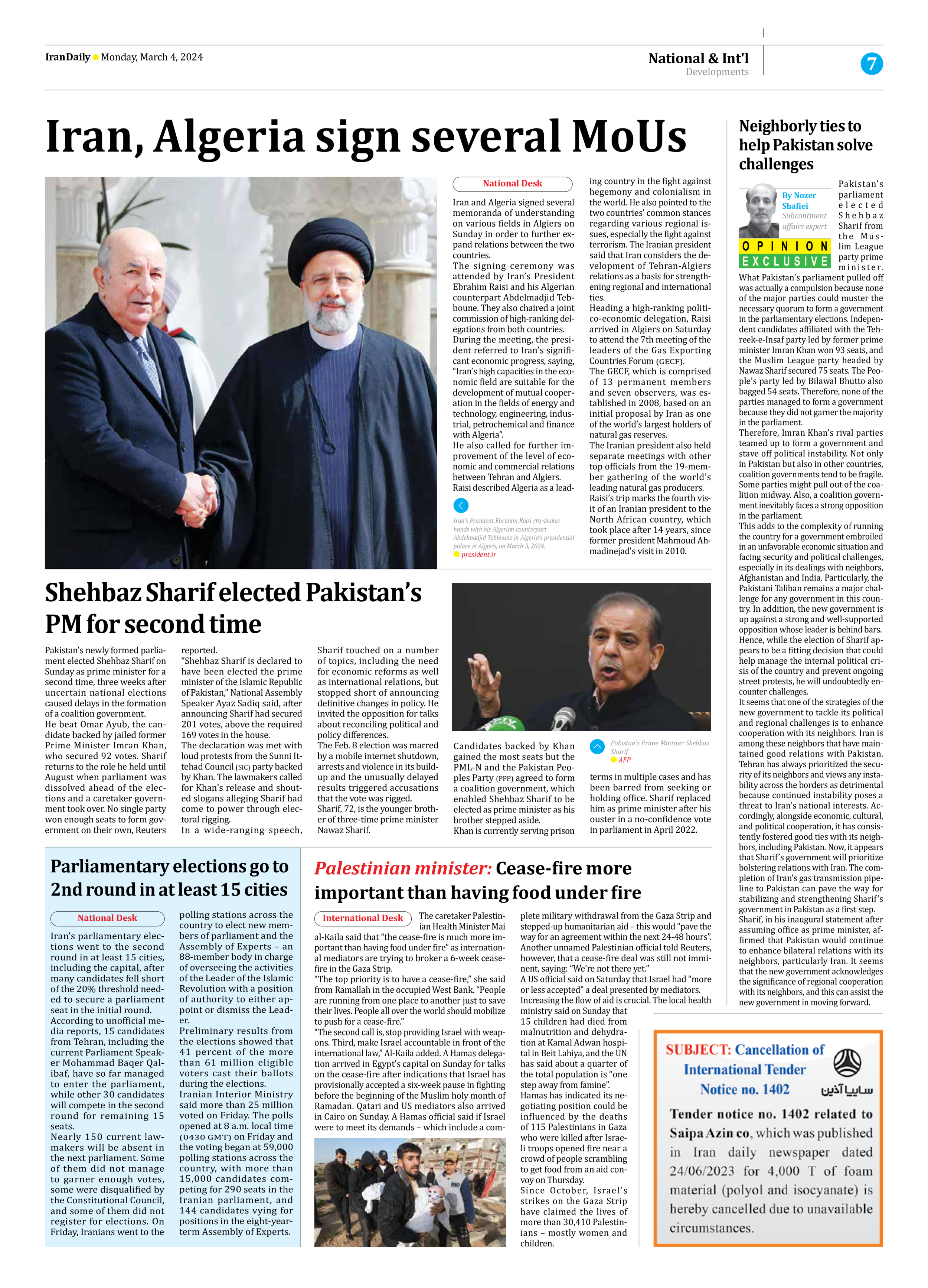
Neighborly ties to help Pakistan solve challenges
By Nozer Shafiei
Subcontinent affairs expert
Pakistan’s parliament elected Shehbaz Sharif from the Muslim League party prime minister. What Pakistan’s parliament pulled off was actually a compulsion because none of the major parties could muster the necessary quorum to form a government in the parliamentary elections. Independent candidates affiliated with the Tehreek-e-Insaf party led by former prime minister Imran Khan won 93 seats, and the Muslim League party headed by Nawaz Sharif secured 75 seats. The People’s party led by Bilawal Bhutto also bagged 54 seats. Therefore, none of the parties managed to form a government because they did not garner the majority in the parliament.
Therefore, Imran Khan’s rival parties teamed up to form a government and stave off political instability. Not only in Pakistan but also in other countries, coalition governments tend to be fragile. Some parties might pull out of the coalition midway. Also, a coalition government inevitably faces a strong opposition in the parliament.
This adds to the complexity of running the country for a government embroiled in an unfavorable economic situation and facing security and political challenges, especially in its dealings with neighbors, Afghanistan and India. Particularly, the Pakistani Taliban remains a major challenge for any government in this country. In addition, the new government is up against a strong and well-supported opposition whose leader is behind bars.
Hence, while the election of Sharif appears to be a fitting decision that could help manage the internal political crisis of the country and prevent ongoing street protests, he will undoubtedly encounter challenges.
It seems that one of the strategies of the new government to tackle its political and regional challenges is to enhance cooperation with its neighbors. Iran is among these neighbors that have maintained good relations with Pakistan. Tehran has always prioritized the security of its neighbors and views any instability across the borders as detrimental because continued instability poses a threat to Iran’s national interests. Accordingly, alongside economic, cultural, and political cooperation, it has consistently fostered good ties with its neighbors, including Pakistan. Now, it appears that Sharif’s government will prioritize bolstering relations with Iran. The completion of Iran’s gas transmission pipeline to Pakistan can pave the way for stabilizing and strengthening Sharif’s government in Pakistan as a first step.
Sharif, in his inaugural statement after assuming office as prime minister, affirmed that Pakistan would continue to enhance bilateral relations with its neighbors, particularly Iran. It seems that the new government acknowledges the significance of regional cooperation with its neighbors, and this can assist the new government in moving forward.







